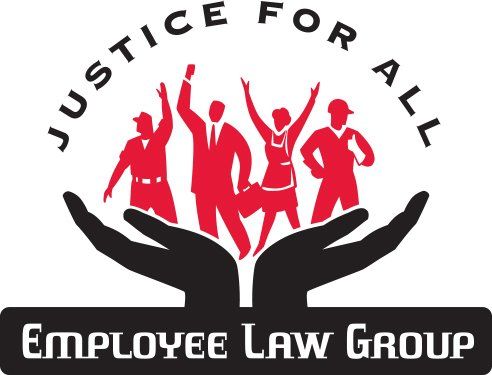- WHO WE HELP
- ABOUT
- GET STARTED
-
CASES WE TAKE
- UNPAID WAGES
- CLASS ACTION SUITS
- FAMILY & MEDICAL LEAVE
- PREGNANCY DISABILITY LEAVE
- HARASSMENT
- NEGOTIATION OF SEVERANCE
- EMPLOYMENT CONTRACT NEGOTIATION
- WORKPLACE CLOSURES
- DEFAMATION OF CHARACTER
- BAD REFERENCES
- EXPENSE REIMBURSEMENT
- ILLEGAL DEDUCTIONS FROM WAGES
- MINIMUM WAGE VIOLATIONS
- UNPAID OVERTIME
- UNPAID COMMISSIONS
- WRONGFUL TERMINATION
- SEXUAL HARASSMENT
- LOS ANGELES EMPLOYMENT LAWYER
- LOS ANGELES DISCRIMINATION LAWYER
- WHISTLEBLOWER RETALIATION
- FAQs
- BLOG
- CONTACT
Your Guide to Unpaid Commissions
Many people earn a commission at work, whether as a supplement to their wages or as the entirety of their income. If you have an unpaid commission, it could be making it hard to pay your expenses or save money as planned. Here’s your guide to unpaid commissions, including how an employment attorney may be able to help you get the money you are owed.
What Is Commission?
Commission is money paid to an employee or independent contractor based on achieving a specific predetermined metric. You’ve probably heard of salespeople working on commission, meaning they get a cut of every item they sell. Other ways commission is calculated may include:
- Finishing the production of a certain number of pieces
- Demonstrating a percentage increase in sales
- Hitting a certain dollar volume in sales by the week, month, quarter, or year
- Selling a specific number of units
- Landing new accounts or clients
- Placing a job candidate as a recruiter
- Booking a certain number of appointments
- Selling a real estate property
- Reaching a certain number of billable hours
- Working extra hours during busy periods
- Helping to launch a new product or service
Commission can be figured as a percentage or as a flat fee. It may be given in addition to a base salary or make up 100 percent of a worker’s income.
Is Commission the Same Thing as a Bonus?
Commission is sometimes referred to as a non-discretionary bonus, and there is some overlap between the two. A non-discretionary bonus means it is part of an employment or contracting agreement prior to starting work. This is different from a discretionary bonus, which is typically awarded as a thank you or holiday perk but is completely up to the discretion of the employer.
Has an Employer Tried One of These Methods of Cheating You Out of Commission?
Unfortunately, many employers use various schemes to try to forego paying commission that has been rightfully earned by employees or independent contractors. Some of the tactics they use to cheat workers include:
- Changing the amount of commission in the middle of the calculation period, such as revising it from 20 percent to 10 percent six weeks into a business quarter
- Altering the way commission is calculated, such as changing the baseline that determines whether a metric has been met
- Firing an employee prior to commission payment to get out of paying it (wrongful termination)
- Threatening or harassing an employee in the hopes that they won’t pursue late commission payment or failure to pay commission at all
- Refusing to pay earned commission to an employee who voluntarily quits the company permanently or who takes time off for family leave or medical leave
- Withholding commission from workers who expose unsafe work practices or other unlawful situations (whistleblower retaliation)
- Not wanting to put a commission agreement in writing, saying, “a handshake deal is good enough”
How Does the State of California Protect Workers When It Comes to Commission?
In cases where a worker is rightfully owed unpaid commission money, the state of California considers this wage theft. Not only that, any overtime pay could be calculated based on your regular earnings plus your commission. So, if you work extra hours and aren’t getting proper credit for your commission payments, you could be cheated out of overtime pay as well.
You can file a claim of wage theft with the state’s Department of Industrial Relations. That department will then typically launch an investigation into the matter, and your employer could be assessed fines or extra payments to you in addition to the back commission owed.
What Should You Do If You Have Unpaid Commission?
If you feel safe in your workplace and otherwise have a decent relationship with your employer, it’s often best to talk to them about any unpaid commission or discrepancy in the amount paid. Be sure to have your employment contract in writing, plus any check stubs or deposit records related to the commission. Never give up your documentation to the employer without keeping the original copies for yourself, just in case.
If you and your employer cannot reach an agreement on the matter, or if the situation escalates, making the workplace uncomfortable, your next step may be to reach out to an employment lawyer for assistance. You can lodge a complaint with the state, too, although you may wish to speak with an attorney first to ensure your paperwork is completed properly and that there aren’t other violations for which you should also file a claim.
Why Do Workers Who Are Owed Unpaid Commission Consult Employment Attorneys?
As you may have guessed by reading the information above, issues surrounding unpaid commissions can be complicated. There can be other infractions involved, such as harassment or wrongful termination. You might have been misclassified as a 1099 worker when in fact, you should be an employee. And it can be difficult to prove your employer owes you a commission if you don’t have a written employment contract specifying how the commission is calculated.
An attorney can help you sort through all that to first determine if you have a case and then assist you with proving it in the eyes of the law to get what you are owed.
At Employee Law Group, we usually ask several important questions during our initial consultation to learn more about the case, like
- Do you have a written contract stipulating how the commission is calculated and paid?
- Are you paid commission, or are you paid tips or a discretionary bonus?
- Did the employer violate any California laws in drawing up your commission agreement?
- Did you sign an unconscionable contract, i.e., one that was made under duress or with you at a significant disadvantage to the employer?
- Did you sign a forfeiture clause in your employment contract? This is intended to prevent you from getting a commission if you quit before it is paid. However, it may not be enforceable based on the California county where you work.
We have the experience, knowledge of the law, and resources to help you move forward with a case if you decide you want to go to court. We can also help you navigate state agencies. Our goal is to get you the unpaid commission money you are owed, so you can pay your bills and meet your financial goals. If you are owed other monies, we work to make sure your rights are protected. And in some cases, we help clients get reinstated at work if they have been wrongfully terminated, or we make sure they do not have their reputation damaged by an unscrupulous employer.
You don’t have to pay anything; our first consultation at Employee Law Group is free. Call us at 310-407-7358 if you are in the Los Angeles area and have unpaid commission. Or feel free to get in touch online and let us know how we can help.









EMPLOYEE LAW GROUP | JUSTICE FOR ALL
21250 Hawthorne Blvd. Suite 500, Torrance CA, 90503
500 Capitol Mall, Suite 2350, Sacramento, CA, 95814

